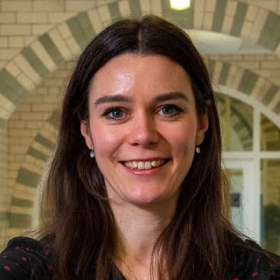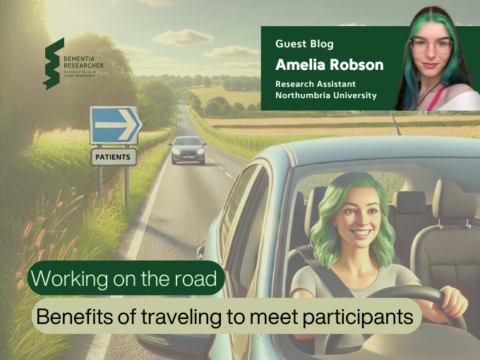It feels quite some time ago that I’ve done my PhD. Not having gone down the usual route, my PhD [“Exploring everyday activities in relation to cognition and well-being in dementia: Implications for care interventions” to be precise] was self-funded, as I had a clear idea of what I wanted to look at. That was only possible by working as a research assistant at Manchester full-time already, which further shaped my idea.
Studying for a PhD on the side so to say was not easy, but if I had to repeat it, I definitely would as working in the field, making connections and learning about the topic area besides your own PhD is incredibly valuable. By doing both, you can build yourself up as a researcher that bit easier.
As we all know though, studying for a PhD can be really tough at times (and obviously it should be) and support can often be sparse. Whilst recruitment, navigating ethics, applying the right statistics, and more, can be difficult, that can all be learned. The one thing that I struggled with was not getting any proper supervision, despite having had three supervisors. I suppose now, more than 3 years after getting my PhD, and with having worked at two other Universities since to broaden my expertise, I feel comfortable to say this. What’s more, supervising my own students now (from PhD to DClin, Masters, and interns), makes me implement (I hope!) what I’ve learned from bad PhD supervision.
So, how has bad supervision influenced my own supervisory style?
First, I’m trying to be as accessible as possible. If a student needs to talk about an issue in between those monthly meetings, we can email, phone, or (virtually) meet up and discuss. Because problems in analysis, recruitment, interviewing, or other forms of data collection should not wait for days or weeks until they are solved. To make sure the PhD is on track, we as supervisors need to talk through any issues cropping up immediately. Fair to say I didn’t have that during my PhD, not even regular monthly meetings. Getting an email back after a few weeks at times after repeated reminders was a ‘positive’.
Second, alongside being accessible, being engaged in the PhD more widely is equally important. Getting drafts or other things that students need feedback on should be returned timely. Especially given that the writing and critical thinking process is a key part of a PhD, so getting feedback throughout the PhD, instead of only in the last few months, should be top priority.
Third, I’m trying to offer opportunities to build their networks in the field and attend conferences, specific meetings, and link up with relevant people in the field. When you’re new to a research area, you may not know which conferences are best, and have limited contacts. But we all know that networking and collaborations are key to conducting great research. This also means embedding public and stakeholder involvement in all student projects, because knowing carers and people with dementia is just as important as knowing care providers and fellow researchers.
Fourth, ensuring that students feel comfortable in expressing their opinions about research and critically analyse (and also trash a paper if it’s really bad!) is really important. That’s why I’ve set up the Liverpool Dementia & Ageing Research Forum Journal Club, where students take it in turn to present and have that relaxed environment of thinking critically, and beyond.
There are many more things that characterise good supervision, and by no means do I know all of them. But having been at the receiving end, being passionate about a topic yet getting very little feedback from supervisors, has left me eager to not replicate these experiences for other students, and to try to make that rollercoaster ride of a PhD that little bit more supported. If you really want to know whether I’ve achieved that so far, you have to ask my students though!

Dr Clarissa Giebel
Author
Dr Clarissa Giebel is a Senior Research Fellow at the University of Liverpool and NIHR ARC North West Coast. Clarissa has been working in dementia care research for over 10 years focusing her research on helping people with dementia to live at home independently and well for longer, addressing inequalities that people with dementia and carers can face. Outside of her day work, Clarissa has also organised a local dementia network – the Liverpool Dementia & Ageing Research Forum, and has recently started her own podcast called the Ageing Scientist.

 Print This Post
Print This Post






How do you square all these fine words with blocking someone with dementia on Twitter?